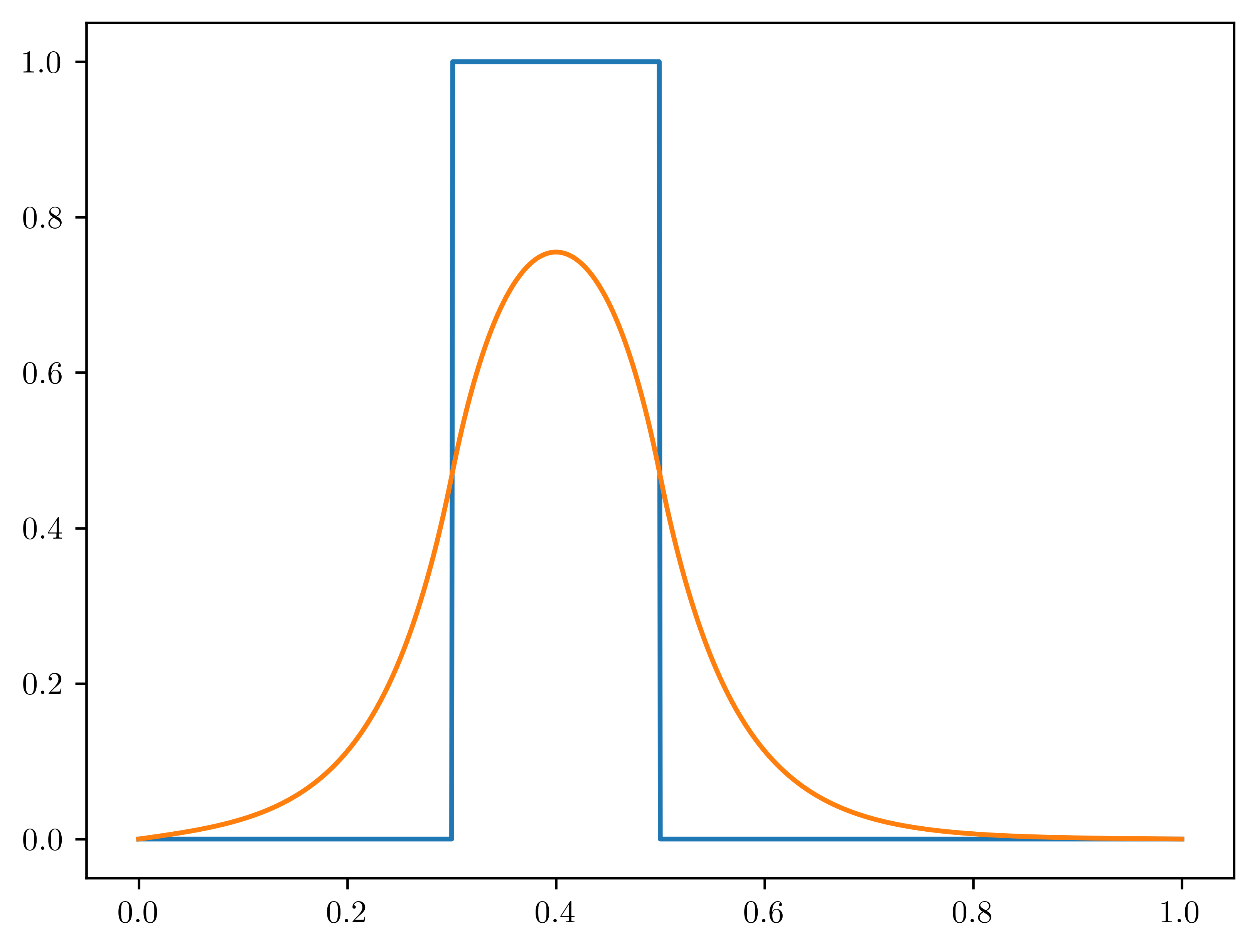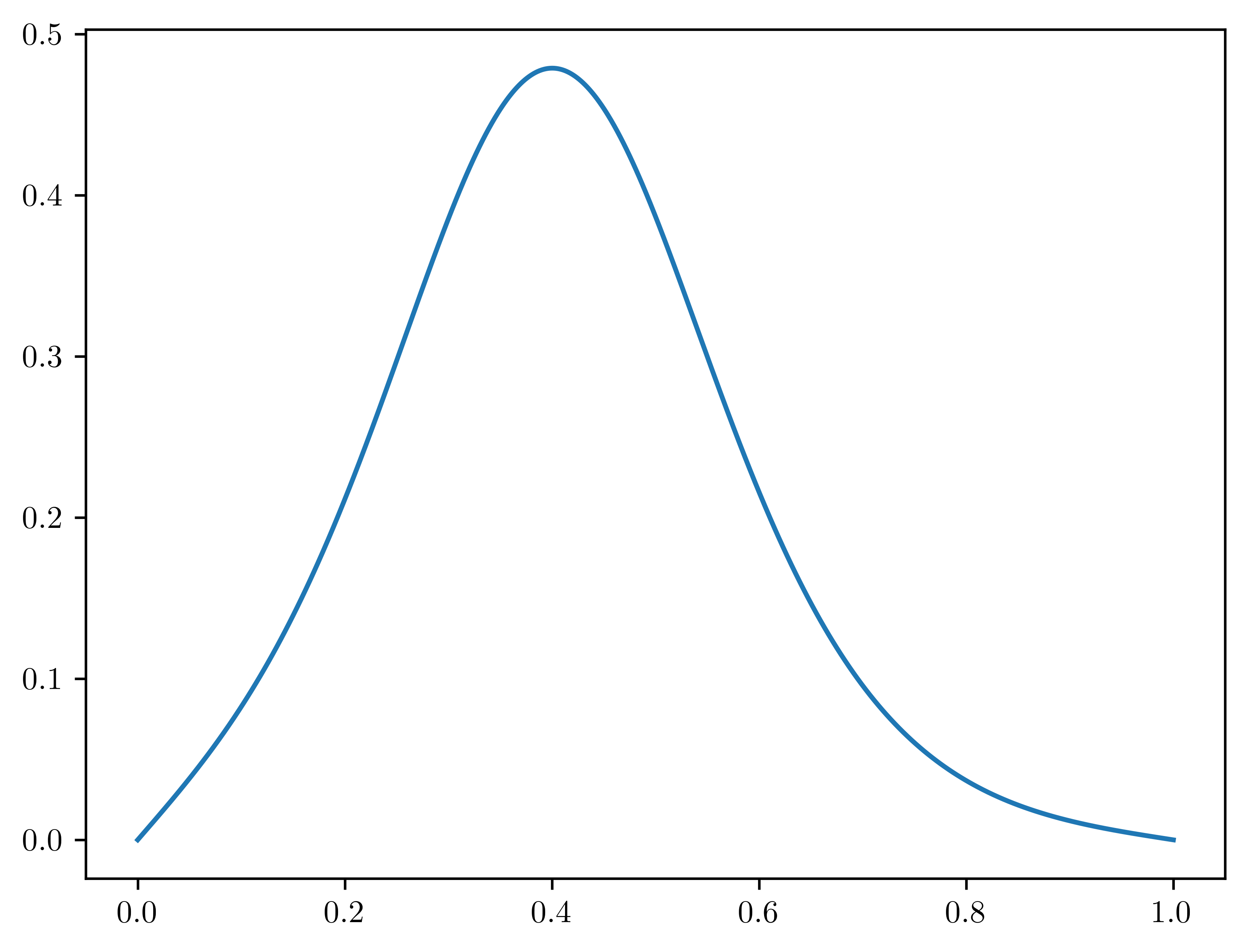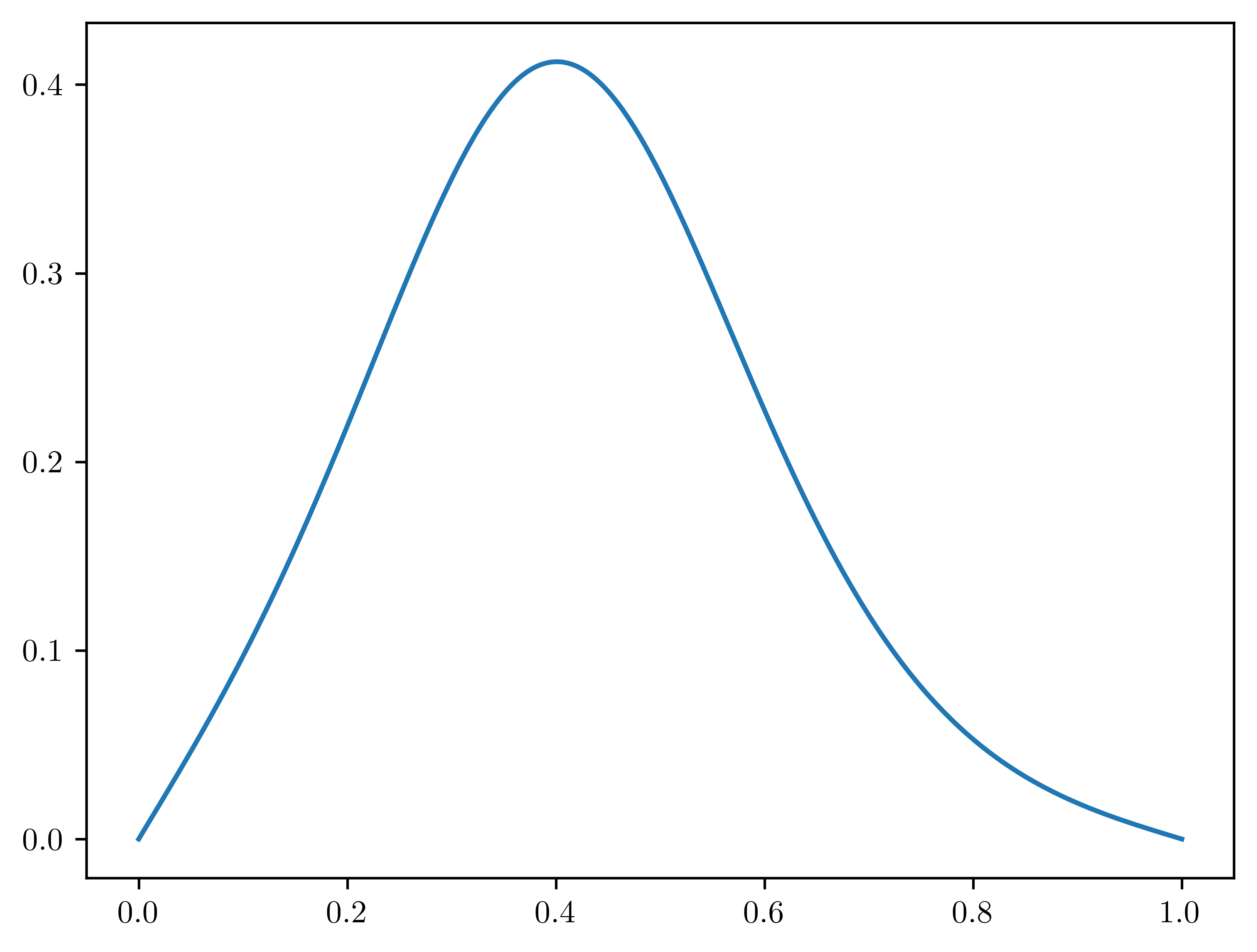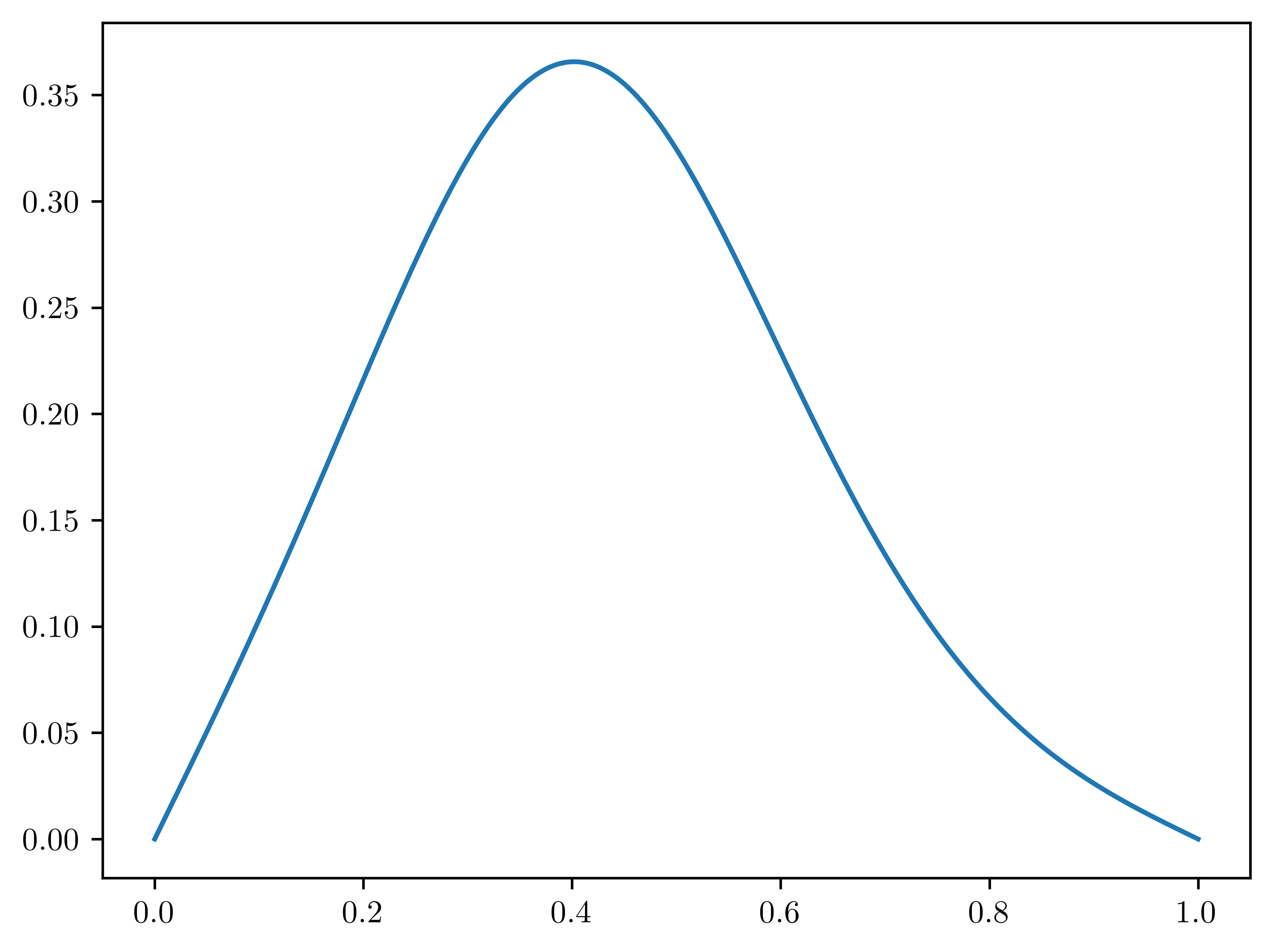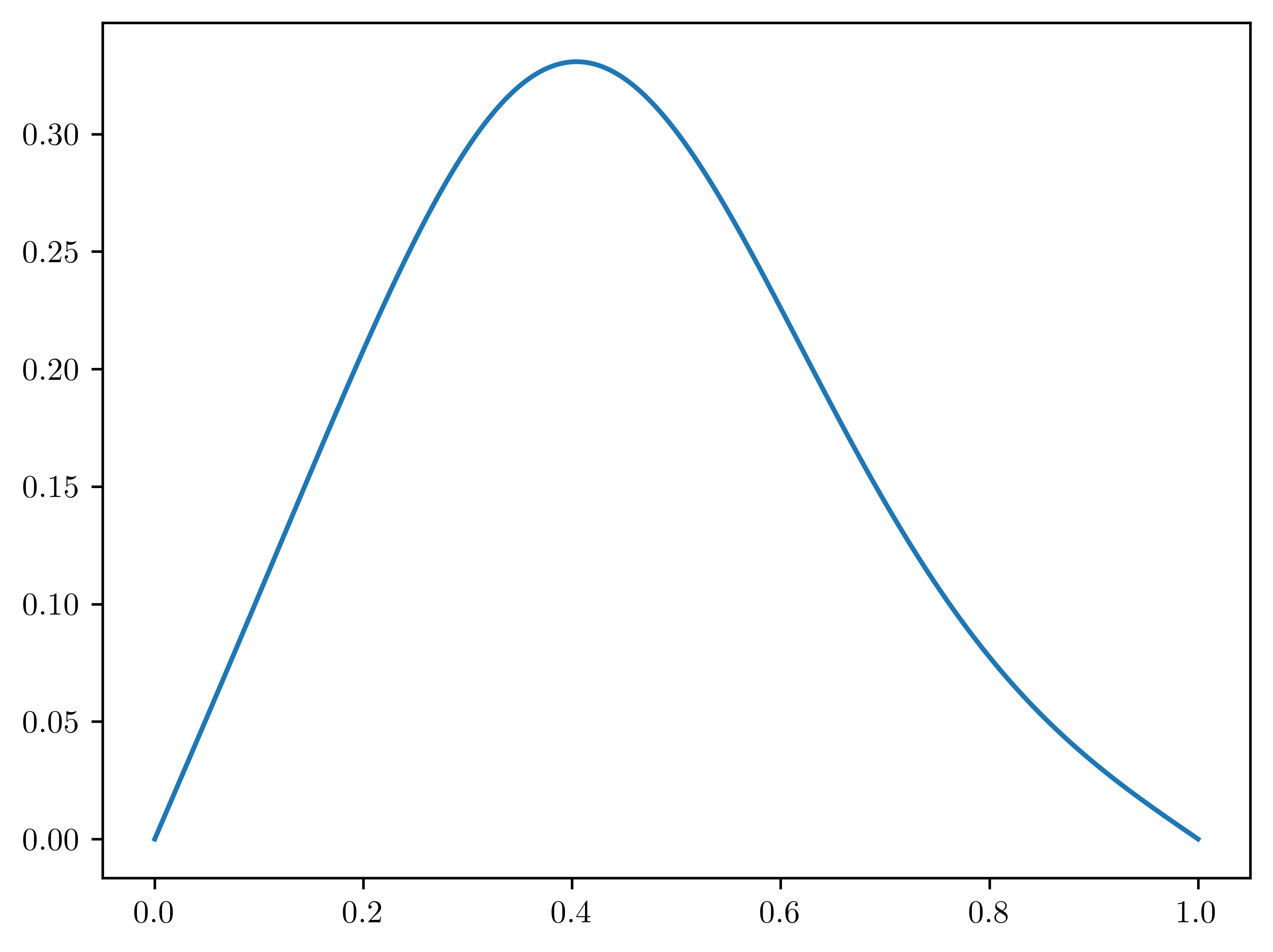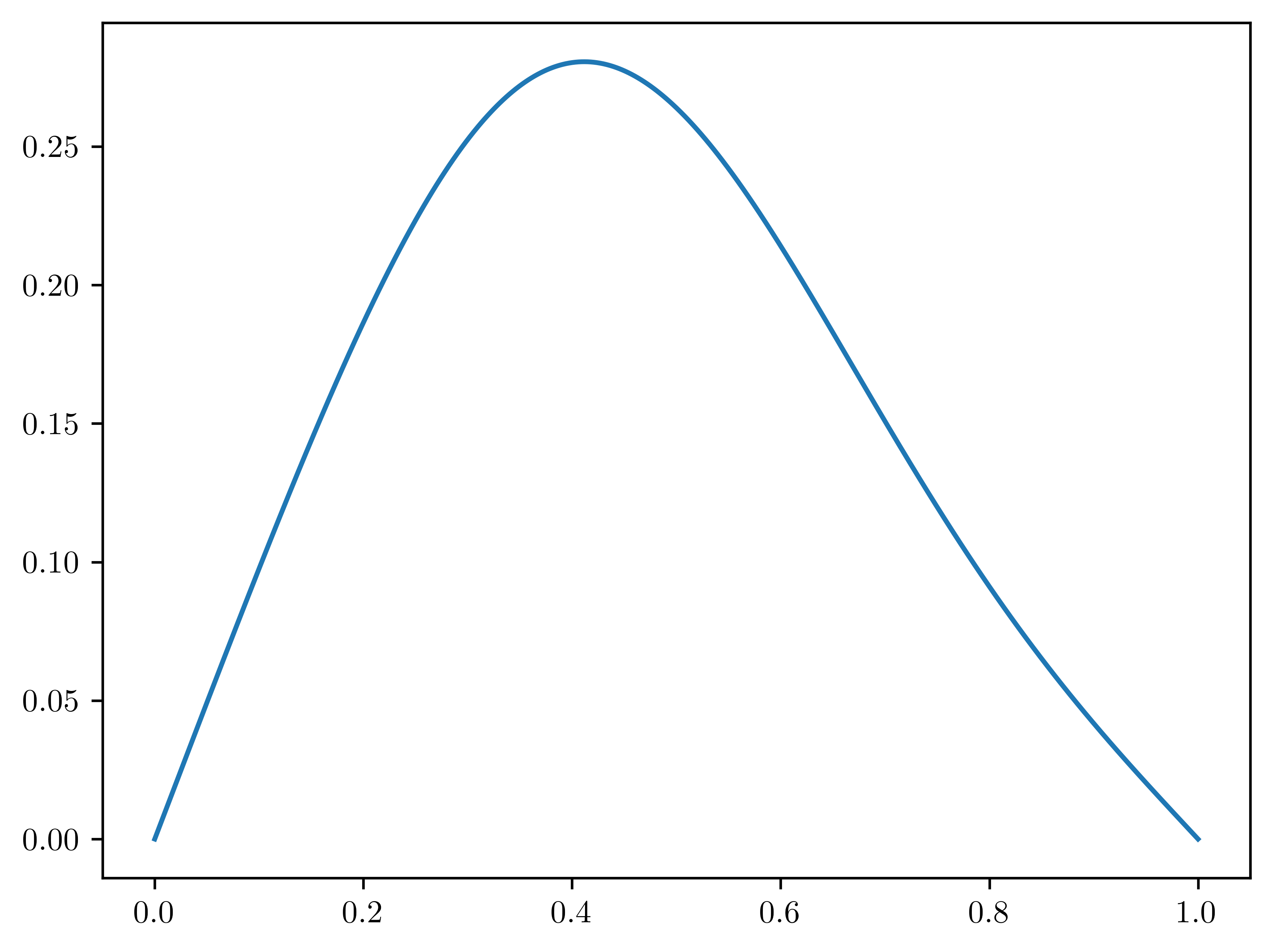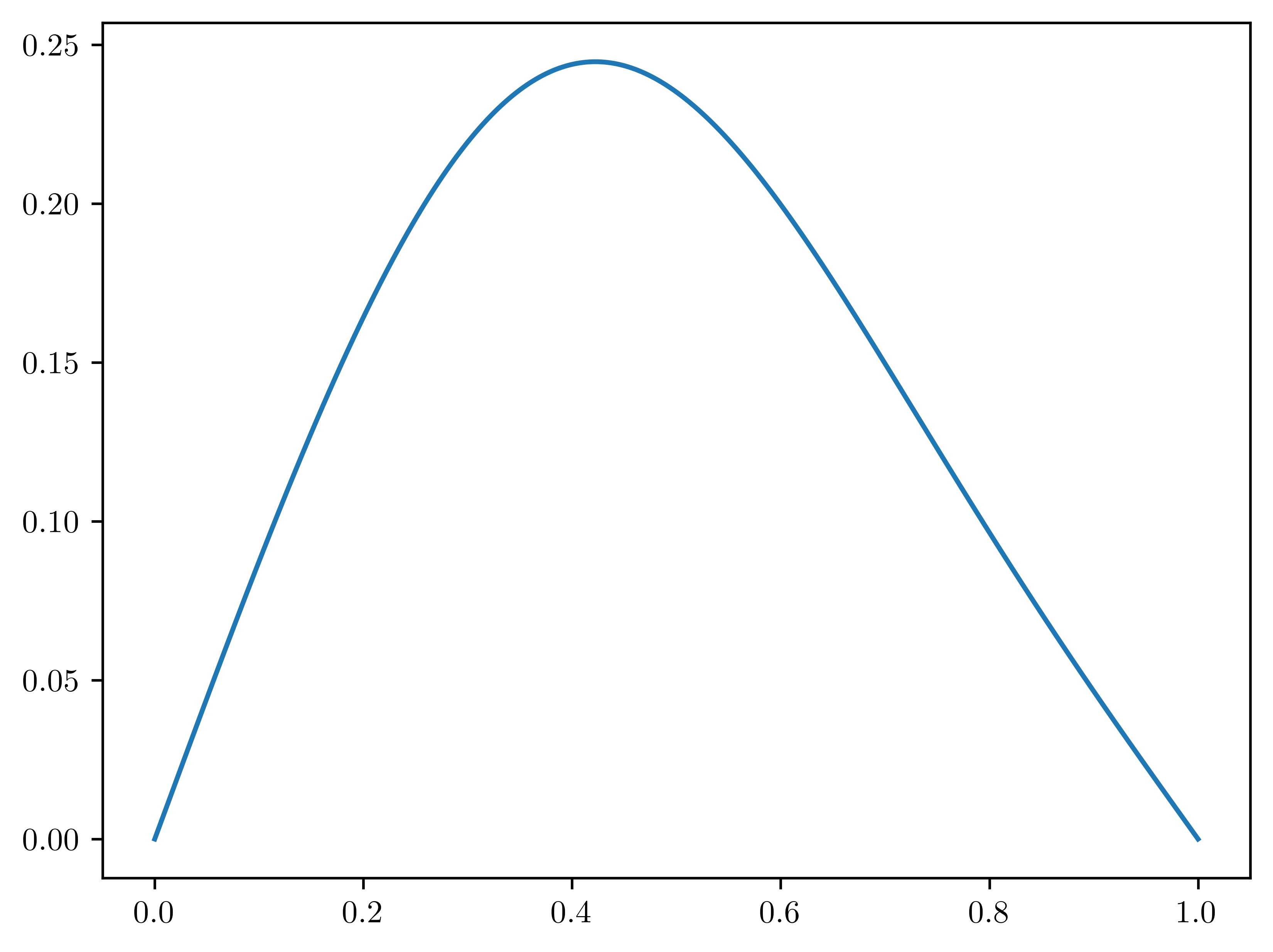16. 1D heat diffusion#
Uses the Python interface to PETSc (petsc4py) to solve the transient 1D heat
diffusion with Dirichlet Boundary Conditions. This is a super simple example
showcase of the linear iterative solvers PETSc has to offer. It runs
sequentially without MPI.
Consider the 1D heat equation defining how a temperature is distributed e.g.
over a one-dimensional rod.
∂u/∂t = ∂²u/∂x²
with Dirichlet Boundary Conditions at both ends of a unit domain
u(t, x=0) = 0 = u(t, x=1)
and the following initial condition
┌────────────────────────────────────────┐
│⢸⠀⠀⠀⠀⠀⠀⠀⠀⠀⠀⠀⢰⠒⠒⠒⠒⠒⠒⢲⠀⠀⠀⠀⠀⠀⠀⠀⠀⠀⠀⠀ │ y1
│⢸⠀⠀⠀⠀⠀⠀⠀⠀⠀⠀⠀⢸⠀⠀⠀⠀⠀⠀⢸⠀⠀⠀⠀⠀⠀⠀⠀⠀⠀⠀ ⠀│
│⢸⠀⠀⠀⠀⠀⠀⠀⠀⠀⠀⠀⢸⠀⠀⠀⠀⠀⠀⢸⠀⠀⠀⠀⠀⠀⠀⠀⠀⠀⠀ ⠀│
│⢸⠀⠀⠀⠀⠀⠀⠀⠀⠀⠀⠀⢸⠀⠀⠀⠀⠀⠀⢸⠀⠀⠀⠀⠀⠀⠀⠀⠀⠀⠀ ⠀│
│⢸⠀⠀⠀⠀⠀⠀⠀⠀⠀⠀⠀⢸⠀⠀⠀⠀⠀⠀⢸⠀⠀⠀⠀⠀⠀⠀⠀⠀⠀⠀ ⠀│
│⢸⠀⠀⠀⠀⠀⠀⠀⠀⠀⠀⠀⢸⠀⠀⠀⠀⠀⠀⢸⠀⠀⠀⠀⠀⠀⠀⠀⠀⠀⠀ ⠀│
│⢸⠀⠀⠀⠀⠀⠀⠀⠀⠀⠀⠀⢸⠀⠀⠀⠀⠀⠀⢸⠀⠀⠀⠀⠀⠀⠀⠀⠀⠀⠀ ⠀│
│⢸⠀⠀⠀⠀⠀⠀⠀⠀⠀⠀⠀⢸⠀⠀⠀⠀⠀⠀⢸⠀⠀⠀⠀⠀⠀⠀⠀⠀⠀⠀ ⠀│
│⢸⠀⠀⠀⠀⠀⠀⠀⠀⠀⠀⠀⢸⠀⠀⠀⠀⠀⠀⢸⠀⠀⠀⠀⠀⠀⠀⠀⠀⠀⠀ ⠀│
│⢸⠀⠀⠀⠀⠀⠀⠀⠀⠀⠀⠀⢸⠀⠀⠀⠀⠀⠀⢸⠀⠀⠀⠀⠀⠀⠀⠀⠀⠀⠀ ⠀│
│⢸⠀⠀⠀⠀⠀⠀⠀⠀⠀⠀⠀⢸⠀⠀⠀⠀⠀⠀⢸⠀⠀⠀⠀⠀⠀⠀⠀⠀⠀⠀ ⠀│
│⢸⠀⠀⠀⠀⠀⠀⠀⠀⠀⠀⠀⢸⠀⠀⠀⠀⠀⠀⢸⠀⠀⠀⠀⠀⠀⠀⠀⠀⠀⠀ ⠀│
│⢸⠀⠀⠀⠀⠀⠀⠀⠀⠀⠀⠀⡸⠀⠀⠀⠀⠀⠀⢸⠀⠀⠀⠀⠀⠀⠀⠀⠀⠀⠀ ⠀│
│⢸⠀⠀⠀⠀⠀⠀⠀⠀⠀⠀⠀⡇⠀⠀⠀⠀⠀⠀⢸⠀⠀⠀⠀⠀⠀⠀⠀⠀⠀⠀ ⠀│
│⢼⠤⠤⠤⠤⠤⠤⠤⠤⠤⠤⠤⠧⠤⠤⠤⠤⠤⠤⠼⠤⠤⠤⠤⠤⠤⠤⠤⠤⠤⠤⠤⠤│
└────────────────────────────────────────┘
0.0 1.0
-----
Solution strategy (BTCS):
Denote with û the solution at the next point in time. Then use
Finite Difference discretization on a uniform mesh. Discretize
the time derivative by implicit Euler and the second spatial
derivative by central differences.
(û[i] − u[i])/Δt = (û[i−1] − 2 û[i] + û[i+1])/Δx²
with the conditions on the Dirichlet Boundary points
û[0] = 0.0
û[-1] = 0.0
Move all points at next time step to the lhs and all terms at
previous time step to rhs.
û[i] + Δt/Δx² (− û[i−1] + 2 û[i] − û[i+1]) = u[i]
This can be expressed as a linear system of equations
A x = b
with A being
+----- ------+
| 1.0 |
| −Δt/Δx² 1 + 2Δt/Δx² −Δt/Δx² |
| −Δt/Δx² 1 + 2Δt/Δx² −Δt/Δx²
A = | −Δt/Δx² 1 + 2Δt/Δx² −Δt/Δx²
| ⋱ ⋱ ⋱
| ⋱ ⋱ ⋱
| −Δt/Δx² 1 + 2Δt/Δx² −Δt/Δx² |
| 1.0 |
+----- ------+
A therefore has the following sparsity structure
+---------------+
|* |
|* * * |
| * * * |
A = | * * * |
| * * * |
| * * * |
| * * *|
| *|
+---------------+
which is not fully tri-diagonal, because we did not eliminate the
Dirichlet DoF. Hence, it is also not symmetric.
-----
The PETSc linear solver can be set at runtime.
Use this command to monitor the solution process:
python petsc_python_simple_heat_diffusion.py -ksp_monitor
Use this flag to swap the linear solver
python petsc_python_simple_heat_diffusion.py -ksp_type [SOLVER_NAME]
from petsc4py import PETSc, init
import sys
import numpy as np
import matplotlib.pyplot as plt
[45f1bc1db132:04391] shmem: mmap: an error occurred while determining whether or not /tmp/ompi.45f1bc1db132.33333/jf.0/208076800/shared_mem_cuda_pool.45f1bc1db132 could be created.
[45f1bc1db132:04391] create_and_attach: unable to create shared memory BTL coordinating structure :: size 134217728
init(sys.argv)
N_POINTS = 1001
TIME_STEP_LENGTH = 0.005
N_TIME_STEPS = 10
def main():
element_length = 1.0 / (N_POINTS - 1)
mesh = np.linspace(0.0, 1.0, N_POINTS)
# Create a new sparse PETSc matrix, fill it and then assemble it
A = PETSc.Mat().createAIJ([N_POINTS, N_POINTS])
A.setUp()
diagonal_entry = 1.0 + 2.0 * TIME_STEP_LENGTH / element_length**2
off_diagonal_entry = - 1.0 * TIME_STEP_LENGTH / element_length**2
A.setValue(0, 0, 1.0)
A.setValue(N_POINTS-1, N_POINTS-1, 1.0)
for i in range(1, N_POINTS - 1):
A.setValue(i, i, diagonal_entry)
A.setValue(i, i-1, off_diagonal_entry)
A.setValue(i, i+1, off_diagonal_entry)
A.assemble()
# Define the initial condition
initial_condition = np.where(
(mesh > 0.3) & (mesh < 0.5),
1.0,
0.0,
)
# Assemble the initial rhs to the linear system
b = PETSc.Vec().createSeq(N_POINTS)
b.setArray(initial_condition)
b.setValue(0, 0.0)
b.setValue(N_POINTS-1, 0.0)
# Allocate a PETSc vector storing the solution to the linear system
x = PETSc.Vec().createSeq(N_POINTS)
# Instantiate a linear solver: Krylow subspace linear iterative solver
ksp = PETSc.KSP().create()
ksp.setOperators(A)
ksp.setFromOptions()
chosen_solver = ksp.getType()
print(f"Solving with {chosen_solver:}")
plt.plot(mesh, initial_condition)
for iter in range(N_TIME_STEPS):
ksp.solve(b, x)
# Re-assemble the rhs to move forward in time
current_solution = x.getArray()
b.setArray(current_solution)
b.setValue(0, 0.0)
b.setValue(N_POINTS - 1, 0.0)
# Visualize
plt.plot(mesh, current_solution)
plt.draw()
plt.pause(0.5)
plt.show()

